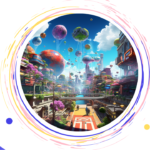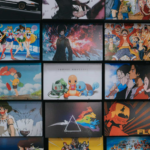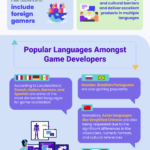Landing a game localization job requires a unique mix of skills – fluency in multiple languages, a deep understanding of different cultures, and of course, a love for gaming. You must showcase your language skills, cultural understanding, and gaming knowledge to secure your dream game localization job. Networking in the industry and creating a solid portfolio of translation work can also give you a competitive edge in securing these highly sought-after game localization jobs.
The game industry lives in a world where its markets have grown to enter new countries. That means their products need a video game translation to reach those audiences. But many devs avoid hiring a game localization specialist and instead go with a fan translation. Especially Japanese games are subject to this method, leading to funny mistranslations throughout game history.
This may seem like a great way to save money and time. But at the end of the day, poor translation does great harm just to save your bottom line.
This guide will discuss why hiring a localization specialist is more important than other alternatives.
The Limitations of Machine Translation
If you don’t speak another language, it’s easy to use Google Translate or DeepL and think nothing of it. But consider how often you see lousy translations from another language to your own. These poor translations leap out at you, may make you laugh, or may even offend you.
Machine translation is impressive for how far it’s come. But at the current moment, it is not enough. Languages are complex, and it takes a professional who knows the nuances to properly convey your ideas.
Hiring a Game Localization Specialist Is Immediately Noticeable
Let’s address the elephant in the room: there’s a long history of bad game translation. It’s clear why this is the case – a good game translation would cost much money, which many game developers don’t have.
But consider how this looks from the perspective of your customers. They can tell when you’ve done a proper translation and when you’ve rushed it into the target language. The challenge is the language and cultural barrier that results in your customers being unable to communicate their problems.
But if you hire a game localization specialist or a game translation service, gamers notice. They can tell when they’ve gotten experience in translation. They’ll only be more willing to financially support you.
A Fan Translation Is Not Sufficient
Fan translations are a great “free” way to get a translation from a native speaker. But this as well plagues you with issues you may not have realized:
- Your fans may have done a poor translation, too
- It’s an unofficial translation, and you have little control over the process, including whether they follow any specific style guides.
- Your fans may give unintended translations that are confusing, funny, or offensive.
- Translations may be inconsistent as fans usually don’t create glossaries or follow the best localization practices.
- You are open to legal issues since you cannot control the translation process. The translation might have changed the licensor’s original intent to convey a different meaning in his language. In some cases, you are risking a lawsuit.
- Fan translations often don’t involve independent proofreading by a third party. Grammar, spelling, and expressions are at risk as you don’t know the fan translator’s skills as a translator. Localization for your video game should be handled by game localization specialists in your target markets, making sure it’s translated at the highest quality. This includes proofreading and localization quality assurance testing.
Price Fallacy Trying To Do Translations In-House
Consequently, it’s reasonable for game studios to manage game localization in-house to cut costs. Think twice, though: Countless costs increase your translation spending rather than making them smaller. Let’s go through the most important ones:
Hiring a Game Localization Specialist
The true costs of hiring an employee are often played down. As a matter of fact, it takes an average of 52 days and $4,000 to hire a new employee in the United States, according to Glassdoor. The hiring process is expensive depending on several aspects, like company policies, labor laws, onboarding, training, base salary, and benefits. The higher cost often scares companies away from hiring someone they may not be sure will work out.
Quality
Speaking of: you will probably hire a freelance translator through marketplaces like UpWork to cut employee benefits. Note, though, that it’s no guarantee for you to pick the top-rated freelancer and receive high-quality translations. There are limited options for you to confirm that the freelancer you hired did the job they’re sharing in their portfolio. Worst case: The result is low quality, and you must employ another game localization specialist, increasing your hiring costs.
Reliability
In a gig economy, freelancers work on projects. If you need an urgent translation, there’s a possibility the original translator job will not be available. This risks the quality of your translation; even worse, it can delay your game content release, causing more costs.
Management
A localization project manager is a highly skilled executive who manages the entire localization process. Finding the right fit can be challenging but mandatory if you want to manage an international team and ensure high quality. Usually, per language, you will need at least 3-4 members to localize, proofread, and do localization quality assurance.
Considering the current crisis and the aspects mentioned earlier, it makes sense why most AAA mobile game companies outsource their localization to specialized video game localization agencies.
Get a Game Localization Specialist Today
Put simply, a fan translation is a shot in the dark. You have no idea what you’ll get and no quality control.
It is risky to use fan translations. It can upset your game community, or worse, it might become a legal issue. Take Tower of Fantasy Team’s approach to lure fans into localizing their game for free with paid in-game currency.
In-house localization teams are beginning to dwindle as the global economy slows and costs rise.
Still, game translation is the gateway for you to reach your international audiences. It’s a significant foundation for game marketing and entering new markets. In fact, poor translations can ruin your original game and global revenues. Include translators or best, hiring a game localization specialist ensures you get your game officially localized and avoid the issues a fan translation presents.
Looking to get one of these proper translations? SandVox Game Translation Agency is here to help. Use the game translation cost calculator to estimate how much it would be to translate your game.






